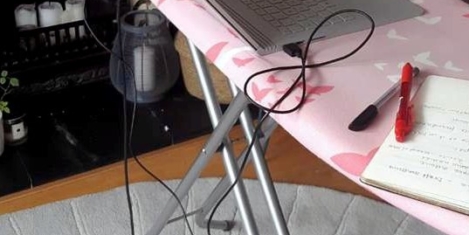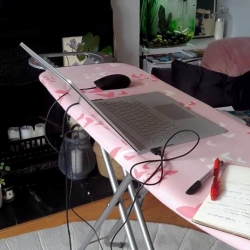To provide the best experiences, we use technologies like cookies to store and/or access device information. Consenting to these technologies will allow us to process data such as browsing behaviour or unique IDs on this site. Not consenting or withdrawing consent, may adversely affect certain features and functions.
The technical storage or access is strictly necessary for the legitimate purpose of enabling the use of a specific service explicitly requested by the subscriber or user, or for the sole purpose of carrying out the transmission of a communication over an electronic communications network.
The technical storage or access is necessary for the legitimate purpose of storing preferences that are not requested by the subscriber or user.
The technical storage or access that is used exclusively for statistical purposes.
The technical storage or access that is used exclusively for anonymous statistical purposes. Without a subpoena, voluntary compliance on the part of your Internet Service Provider, or additional records from a third party, information stored or retrieved for this purpose alone cannot usually be used to identify you.
The technical storage or access is required to create user profiles to send advertising, or to track the user on a website or across several websites for similar marketing purposes.
 Employees would worry about the security of their job if they were to report suffering an injury in the workplace, claims new research carried out by JMW Solicitors. More than 1,200 people were surveyed and results claim that 39 percent either ‘strongly agreed’ or ‘agreed’ that they were worried their job would be at risk if they reported their employer for negligence. (more…)
Employees would worry about the security of their job if they were to report suffering an injury in the workplace, claims new research carried out by JMW Solicitors. More than 1,200 people were surveyed and results claim that 39 percent either ‘strongly agreed’ or ‘agreed’ that they were worried their job would be at risk if they reported their employer for negligence. (more…)










 More than a year after the coronavirus was first reported the UK, the impact on business is undeniable. Research conducted by
More than a year after the coronavirus was first reported the UK, the impact on business is undeniable. Research conducted by 
 Skills have become the new currency of workforce and talent strategies, as more than half of organisations that responded to the
Skills have become the new currency of workforce and talent strategies, as more than half of organisations that responded to the 
 Lockdown has meant the majority of UK office-based employees have taken up working from home arrangements over the last year, and it seems that many employers lack trust in their employees when they can’t physically see them. Last year
Lockdown has meant the majority of UK office-based employees have taken up working from home arrangements over the last year, and it seems that many employers lack trust in their employees when they can’t physically see them. Last year 
 New research by
New research by 
 Workers across the UK could return to offices faster than anticipated, according to a new RICS survey of facilities managers. According to the poll, a growing number of respondents say that up to 80 percent of employees will head back once the pandemic is resolved. This is up from less than 60 percent expected in the same poll from the previous quarter ending November 2020. As evidence suggests the UK vaccination programme is taking hold across the country, results to the
Workers across the UK could return to offices faster than anticipated, according to a new RICS survey of facilities managers. According to the poll, a growing number of respondents say that up to 80 percent of employees will head back once the pandemic is resolved. This is up from less than 60 percent expected in the same poll from the previous quarter ending November 2020. As evidence suggests the UK vaccination programme is taking hold across the country, results to the 
 Remote work, rapidly accelerated by the pandemic, is now essential to business success and worker productivity. However, as parts of the world open up and hybrid work becomes a reality, research claims that companies must invest in establishing flexible work policies and programs, and address a sizeable disconnect in trust between decision makers and employees, according to a Forrester study commissioned by
Remote work, rapidly accelerated by the pandemic, is now essential to business success and worker productivity. However, as parts of the world open up and hybrid work becomes a reality, research claims that companies must invest in establishing flexible work policies and programs, and address a sizeable disconnect in trust between decision makers and employees, according to a Forrester study commissioned by 
 A
A 
 New research by environmental charity
New research by environmental charity 
 More than six in ten UK managers have experienced burnout at work because of the COVID-19 pandemic, with a fifth considering quitting their job as a result, according to new research from
More than six in ten UK managers have experienced burnout at work because of the COVID-19 pandemic, with a fifth considering quitting their job as a result, according to new research from 








April 13, 2021
After a year of lockdowns, people are burnt-out but happier
by Steven Buck • Comment, Wellbeing